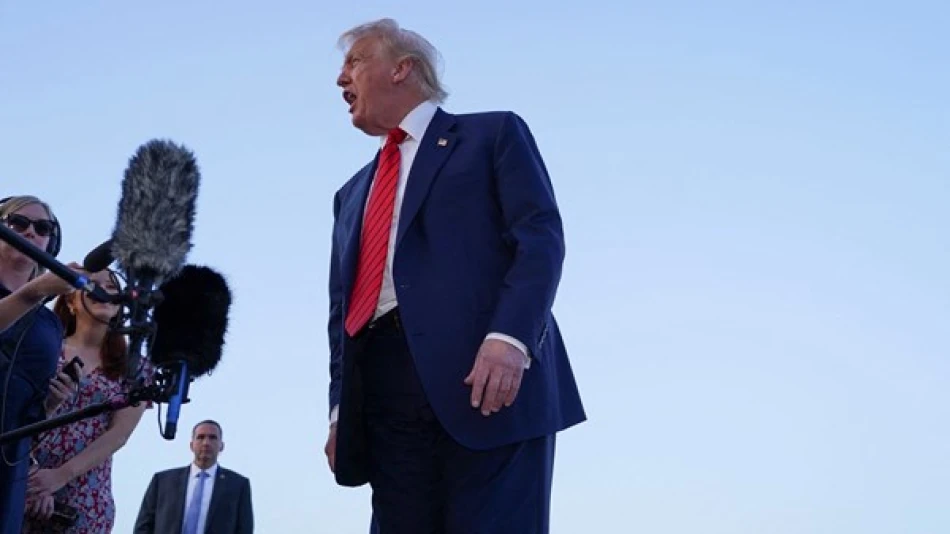
Trump Threatens Massive Tariffs on India, Raising Trade Tensions
Trump's India Tariff Threat Exposes Growing Tensions Over Russian Oil Trade
President Donald Trump escalated trade tensions with India on Monday, threatening significant tariff increases over New Delhi's continued purchase and resale of Russian crude oil. The move signals a hardening U.S. stance against countries that maintain energy ties with Moscow, potentially disrupting one of the world's most important bilateral trade relationships worth over $190 billion annually.
The Accusation: India as Russia's Oil Middleman
In a post on his Truth Social platform, Trump accused India of not only purchasing "massive quantities of Russian oil" but also reselling much of it on the open market for "huge profits." This characterization frames India as profiting from what the U.S. views as sanctions evasion, transforming New Delhi from a neutral energy buyer into an active facilitator of Russian revenue streams.
"For this reason, I will significantly increase the tariffs that India pays to the United States," Trump declared, though he provided no specifics on the proposed rates or timeline.
Escalating Economic Pressure
The threat builds on Trump's previous announcement of a 25% tariff on Indian goods, accompanied by unspecified additional penalties. This represents a dramatic shift from the relatively cooperative trade relationship that existed during previous administrations, despite occasional friction over market access and intellectual property.
The timing is particularly significant as India has become the world's largest importer of Russian crude since the Ukraine conflict began, increasing purchases from virtually zero to over 2 million barrels per day. Much of this oil is refined and re-exported, creating a lucrative arbitrage opportunity that Trump now directly challenges.
India's Defiant Response
Indian government sources told Reuters that New Delhi intends to continue Russian oil purchases despite Trump's threats, signaling a potential standoff between two major economies. This defiance reflects India's calculation that energy security and economic pragmatism outweigh U.S. pressure, especially given domestic energy needs and refining capacity utilization.
Strategic Implications for Global Energy Markets
India's position as the world's fifth-largest economy makes this dispute particularly consequential. If implemented, the tariffs could disrupt supply chains across technology, pharmaceuticals, and textiles sectors where Indian exports play crucial roles in U.S. markets.
The threat also highlights the limitations of secondary sanctions in a multipolar world. Unlike smaller economies that might capitulate to U.S. pressure, India possesses sufficient market power and alternative partnerships to resist unilateral demands, particularly when energy security is at stake.
Broader Geopolitical Context
This confrontation occurs as the U.S. seeks to tighten enforcement of Russian energy sanctions while maintaining strategic partnerships in the Indo-Pacific region. The approach risks pushing India closer to Russia and China at a time when Washington needs New Delhi as a counterweight to Beijing's regional influence.
The dispute may force a recalibration of U.S. sanctions strategy, potentially requiring more nuanced approaches that account for allies' legitimate energy security concerns while maintaining pressure on Russia's war economy.
Most Viewed News

 Layla Al Mansoori
Layla Al Mansoori






